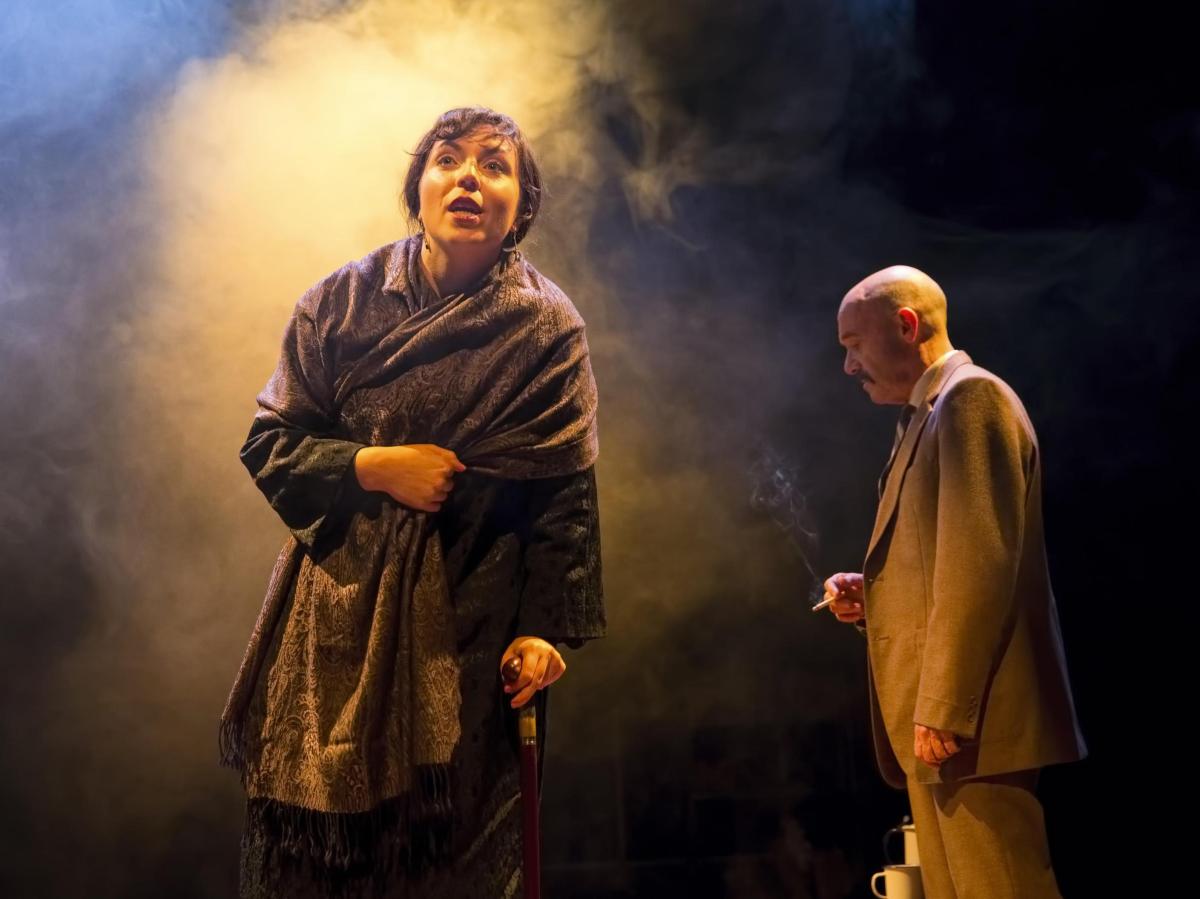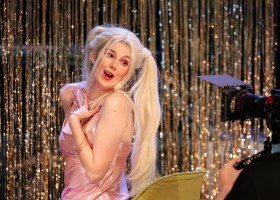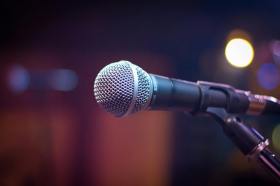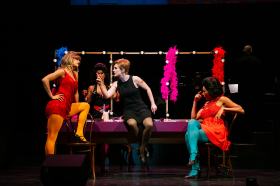Photo by George Darsas
The spirit of Katherine Mansfield looms large over two very different era’s in Alma De Groen’s feminist exploration of artistic and sexual identity. In one it is 1923 and Katherine Mansfield herself battles the authoritarian teachings of mystic and philosopher Georgei Gurdjieff. In the other it is an unspecified future where women dominate society and she inhabits the body of a man who survived an attempted suicide. In both eras though, Katherine Mansfield strives to heal and define herself against a formal authority convinced it knows best.
Mansfield achieved some acclaim as a writer, even in her own time, but was still hampered along with her contemporary Virginia Woolf, by the fact that she was a woman. A point made unambiguously by the Gurdjieff character who states matter-of-factly to Mansfield that “woman is incomplete without man” (sic). In the role of the real Katherin Mansfield Alexandra Aldrich is excellent and gives by far the most compelling performance. She offers a Mansfield boiling over with creative desire yet incomprehensively constrained by a block she cannot name. Her relationships with Murray, her husband, and Gurdjieff smack of patriarchy and her conflict with both men is clearly shown to be at the heart of this block, which undermines Mansfield’s autonomy.
We see the same process play out in the contemporary setting, only the authority figures are now women and the subservient artists, men. It made for an interesting counter-point to the real Katherine Mansfield story, but it was also confusing as both male and female characters try to revive the previous order, or at least a sense of equality. The male Mansfield pleads for the forgotten books of his/her male contemporaries and Rahel, one the treating doctors seems drawn to the male-dominated past too. This confusion is never fully resolved and it’s not the only one.
There is much that feels incomplete about the contemporary chapters of the story. The evolutionary leap that gave rise to the female ascendency, the so called “Medusa Look”, could easily have been left out altogether because it does not provide much of an explanation of the reversal of gender roles. The role of Rahel, is also underdeveloped and despite Kim Denman’s best efforts, there is only so-much she has to work with.
It is Mansfield’s battle with her legacy in this inverted contemporary world that gives it real substance. As a female writer she has been elevated to the loftiest artistic heights but even this is unable to salve the pain that her writing and relationships caused in her previous life. It’s fascinating to watch the struggle unfurl.
The Rivers of China does not fully explore its stared themes of feminism and the suppression of sexual and creative identity, but that’s far from fatal. The examination of an artist’s conflicts in life and how that same emotional struggle effects how they perceive their place in history is what makes this production well worth seeing.
Rating: 4 out of 5 stars
The Rivers of China
Written by Alma De Groen
Directed by Phil Rouse
Featuring Alexandra Aldrich, James Cook and Robert Meldrum
Theatreworks, St Kilda
Until 30 May






